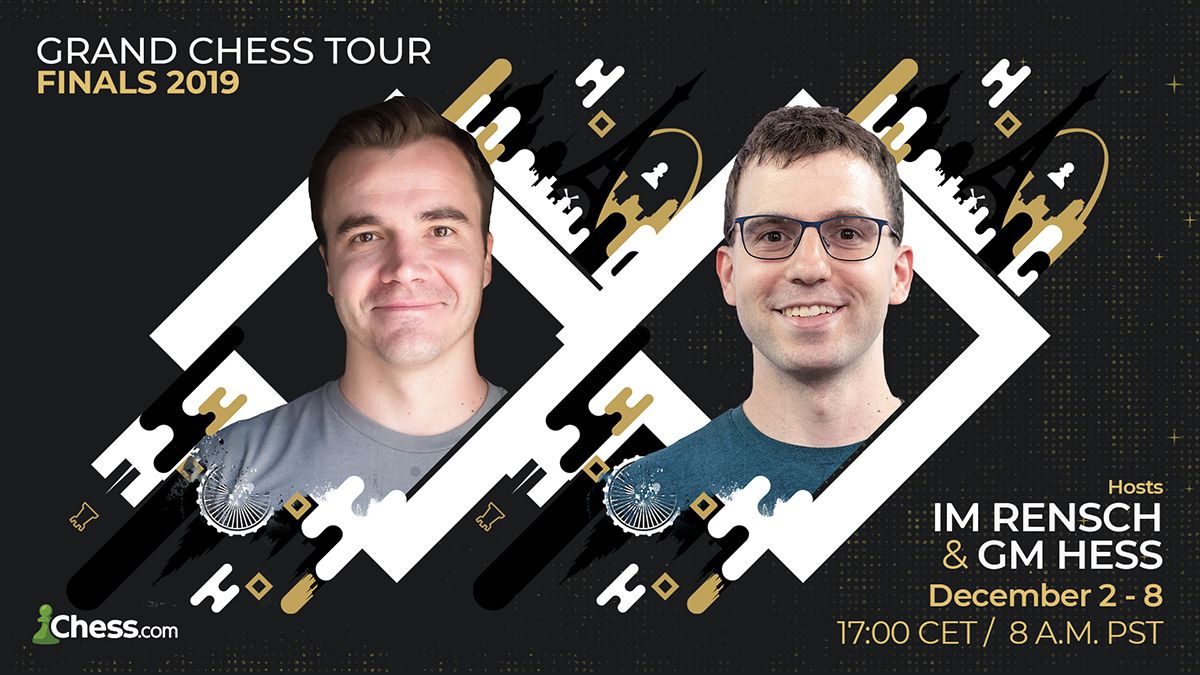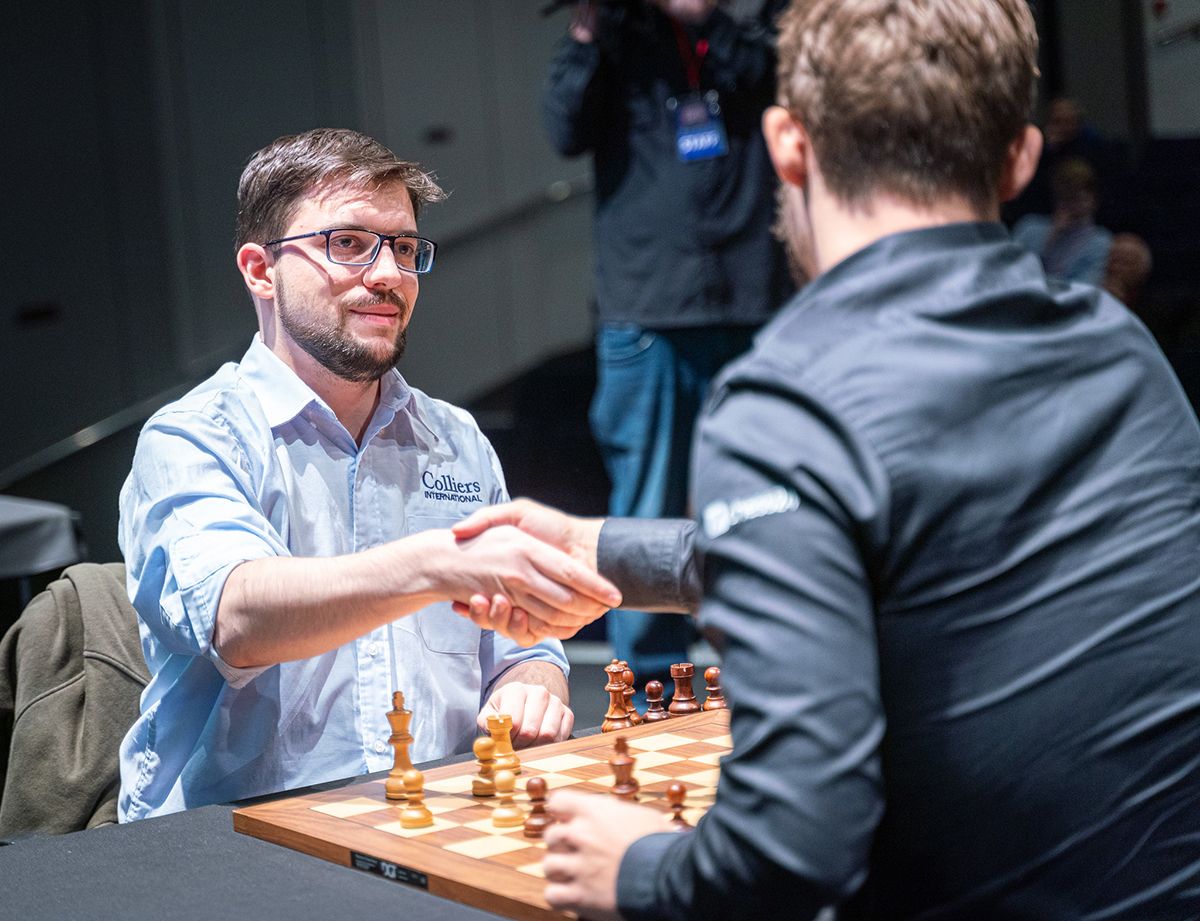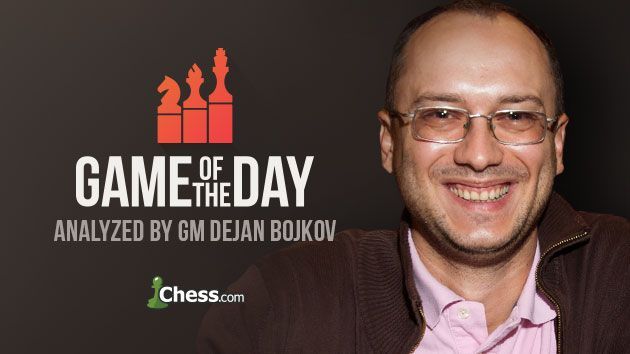
Vachier-Lagrave Beats Carlsen, Faces Ding In Grand Chess Tour Final
Maxime Vachier-Lagrave defeated Magnus Carlsen to reach the final of the Grand Chess Tour playoff. The Frenchman beat the world champion in a tiebreak of their semifinal and will now face Ding Liren in the final. Ding won against Levon Aronian in their semifinal match.
Starting on Friday, Ding and Vachier-Lagrave will now be competing for the $150,000 first-place prize and the title of Grand Chess Tour champion, while Carlsen and Aronian will battle it out for the third-place qualifying spot to the 2020 GCT in addition to a $60,000 prize.

The Grand Chess Tour playoff starts each day at 17:00 CET, which is 11 a.m. Eastern and 8 a.m. Pacific. You can follow the games here as part of our live portal. Commentary is provided by GM Robert Hess & IM Danny Rensch at Chess.com/TV.
Until August of this year, Carlsen was considered to be untouchable in speed chess matches. He had not lost a single tiebreak in 12 years and decided his last two world championship matches in the tiebreak—convincingly.
Since then, his shield of invincibility in such faster matches has started to show some cracks.
After losing the tiebreak of the Sinquefield Cup to Ding and the Fischer Random World Championship to Wesley So, Carlsen yesterday lost his third quick-play match in five months, this time to MVL. Having lost several important tiebreakers himself in his career so far, this win must have given MVL a big boost.

The result came after a rollercoaster of a third day in London, on which the score between the players was still equal after the four blitz games, and a tiebreak was necessary.
After draws in the rapid games and the first blitz game, it was Vachier-Lagrave who scored the first win in the match, with the black pieces. Usually his forte, Carlsen failed to find the critical moves in a rook endgame whereas Vachier-Lagrave, who called it a dead draw, made the most of his chances:

Carlsen bounced back immediately in the next blitz game, using the Kupreichik Sicilian. He outplayed his opponent, who said he "tilted" after he played "a couple of horrific moves."
The final blitz game was drawn ("I managed to pull myself together"—MVL) and so a tiebreak was needed. This consisted of a rapid mini-match of two games with 10 minutes and a five-second delay.
MVL won the first fight, which was enthralling. Carlsen repeated his 6.Bg5 e6 7.f3 concept against the Najdorf from the first game, came with an improvement, got a winning attack but then failed to deliver. He got more chances as the evaluation kept changing drastically but eventually it was Vachier-Lagrave who pulled it off.
MVL: "It was a truly intense fight, very double-edged, all you could ask for probably!"

Needing only a draw, the French GM kept his cool in the last game and held the draw "rather smoothly," as he put it—in fact he was better for most of the game:

Carlsen: "To be honest I felt pretty early on that this wasn't really my day. I just felt really, really sluggish. I think he missed some chances to put the match away earlier on but I was just not good enough for the critical moments."
The world champ gave credit to his opponent: "He's a great player and he is the deserved winner. I think he shows great resilience in several games."

"It was maybe a bit helpful that I know that this is not my main priority," said Vachier-Lagrave. "Of course it is a great pleasure to be here and of course I'm playing to win the event but for me it's mostly about going to the candidates. I am actually happy to be here to take my mind off the Grand Prix. I was not feeling any sort of pressure other than the fact that I was playing a lot of games against the best opponent you can get."

The other semifinal was a completely different story. A rather out-of-sorts Aronian had no chance against Ding, who was in excellent form. The Chinese player, who said he didn't expect things to go so well, dominated this match and won with three blitz games to spare.
Ding started right away with an excellent win in the first of two rapid games. From a quiet position he suddenly sharpened up the game and initially Aronian reacted well to the complications, but a careless queen move allowed a tactic that won a piece for the Chinese player.
"I thought I was playing OK but I overestimated my position," said Aronian. "I should have tried to equalize. I just blundered a single-mover."


Ding also won the second rapid game with strong play. It was a Scheveningen Sicilian with reversed colors, and saw some typical Sicilian themes such as the control over the e4 (e5) square and the sacrifice on b4 (b5). Except for one moment, Aronian was just blown off the board here—although the always modest Ding himself said his play was "a little bit too much."
"The second game of course I played very badly," said Aronian. "I took unnecessary risks."

The score was now 14-6 for Ding, who drew the next game to clinch the match. The remaining games were played nonetheless (see below in the game viewer), and Aronian could at least win one game: the last blitz game. The final score was 19-9 for Ding, who felt he played very well overall.
"He played much better than me," Aronian said. "Honestly I am a bit ashamed of my play today."
On Thursday, the players will take a break from the action to partake in a corporate day, where they will be paired with entrepreneurs in friendly games to raise money for the UK charity Chess in Schools and Communities. Action will resume on Friday.
All games from day three:

In the Grand Chess Tour playoff, each match consists of:
- two standard games with six points for a win, three points for a draw and 0 points for a loss;
- two rapid games with four points for a win, two points for a draw and 0 points for a loss;
- four blitz games with two points for a win, one point for a draw and 0 points for a loss.
Previous reports:

